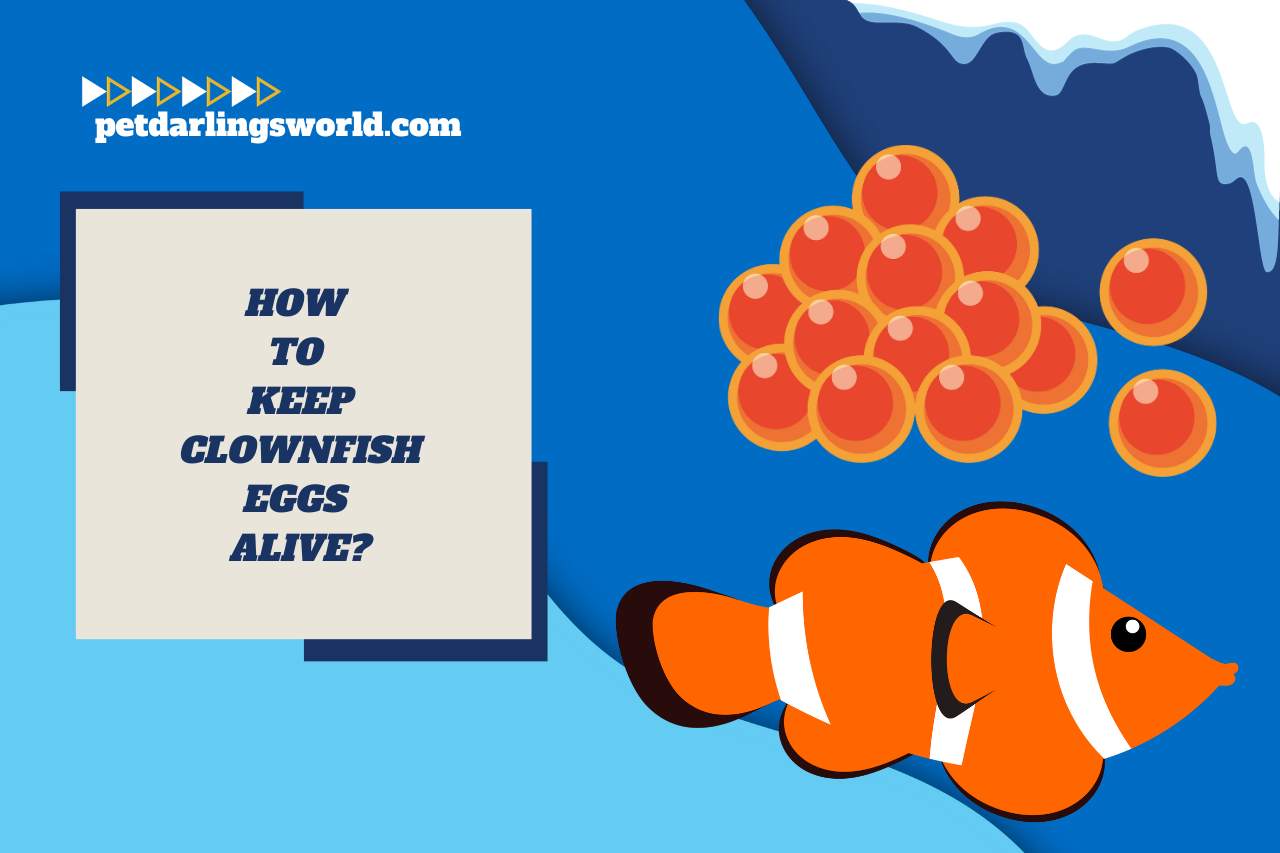If you are expecting to see adorable baby clownfish in your tank, it is vital to have an understanding of ‘how to keep clownfish eggs alive.’ Yes, the art of preserving the vitality of clownfish eggs is delicate. You have to have knowledge about the precise steps, from maintaining optimal tank conditions to ensuring a nutrient-rich diet for expecting parents. Today, you will explore the factors influencing hatching times and the crucial role that the temperature plays in this captivating journey. This comprehensive guide provides aquarists with the insights needed to foster a thriving aquarium community. So, get ready to dive into the world of successful egg incubation, making your underwater adventure both educational and enchanting.
Can You Leave Clownfish Eggs in the Tank?
Yes, you can leave clownfish eggs in the tank. However, you have the responsibility to create an environment conducive to their development.
In fact, when the clownfish is about to lay eggs, they can show isolated or aggressive behaviour since they want to protect their nesting. Thus, the environment really matters to keep their physical and mental health.
It is vital to ensure stable water conditions, maintaining optimal temperature and quality. Moreover, you should minimize disturbances to avoid stressing the eggs.
Keep the tank well-maintained, removing debris to prevent issues. With careful monitoring and the right conditions, leaving clownfish eggs in the tank allows for a natural and successful hatching process.
How to Keep Clownfish Eggs Alive?
To keep clownfish eggs alive, you need to prepare stable tank conditions. Ensuring the vitality of clownfish eggs demands careful attention.
The procedure will be easy with our comprehensive guide, so keep reading.
-
Step 1: Establish Stable Tank Conditions
First of all, ensure a stable environment by maintaining consistent temperature and optimal water quality. Clownfish eggs thrive in stable conditions, and fluctuations can impact their development negatively.
-
Step 2: Minimize Disturbances
It is a must to allow clownfish a natural incubation by minimizing disturbances. Resist the urge to interfere with the eggs, as this can lead to stress and potential issues. Observe from a distance to let nature take its course.
-
Step 3: Provide Nutrient-Rich Diet
Support the expecting parents with a varied and balanced diet. Undoubtedly, proper nutrition contributes to the health of both the adults and the developing eggs. Include high-quality foods rich in proteins and vitamins. But do not overfeed the fish since it can create an imbalance in their diet.
-
Step 4: Regular Tank Cleaning
Maintain a clean tank environment by performing regular cleanings. Remove debris gently to prevent any potential threats to the eggs. Obviously, a clean tank contributes to a healthy and thriving aquatic ecosystem.
-
Step 5: Monitor and Adjust
Regularly monitor the tank conditions and the behavior of the clownfish. Adjust parameters as needed to ensure an optimal environment for egg development. Be attentive to any signs of stress; if the fish show some signs of stress, find the cause.
-
Step 6: Be Patient
Clownfish eggs undergo a natural process, and patience is key. Avoid impulsive actions and allow the eggs to develop at their own pace. You have a limit when taking care of your pregnant clownfish.
-
Step 7: Celebrate Hatching
Once the eggs hatch, celebrate the success of your efforts. Witness the emergence of vibrant clownfish fry and continue to provide appropriate care for the growing offspring!

How Long Do Clownfish Eggs Take to Hatch?
The duration for clownfish eggs that take to hatch varies but generally ranges from 6 to 10 days. Factors such as water temperature and quality influence the hatching time. So, patience is key during this period, and careful monitoring ensures you witness the fascinating moment when the eggs hatch into lively clownfish fry.
Let’s understand the factors that affect the hatching duration.
- Water Temperature: Warmer temperatures often result in faster hatching. Thus, keep in touch and maintain optimal temperature conditions for timely hatching.
- Water Quality: Ensure high water quality for healthy egg development. Regular monitoring and adjustments contribute to a successful hatching process.
Besides, there can be some health issues with the pregnant clownfish that make the hatching process delayed.
What Temperature Do Clownfish Eggs Need?
The clownfish eggs need a temperature ranging from 80 to 84 degrees Fahrenheit (27 to 29 degrees Celsius).
Maintaining this ideal temperature range is crucial for the healthy development of the eggs. And the consistency is key—fluctuations can impact the incubation process.
By carefully regulating the temperature in your aquarium, you provide optimal conditions for the successful hatching of clownfish eggs. You should avoid abrupt temperature changes.
By adhering to these temperature guidelines, you create an environment conducive to the well-being of clownfish eggs, ensuring a vibrant and thriving aquatic community in your tank.
You May Also Like
- How To Tell If A Clownfish Is Pregnant? (Signs & Signals Of Pregnancy)
- Does Clownfish Live In Freshwater? Exploring Clownfish Biomes!
- Can Clownfish Be Kept Together? Tips For Keeping Them Together!
- How Often To Feed Clownfish? Keeping Clownfish Happy
- Are Clownfish Territorial? Debunking Territorial Myths!
- How Often Should I Feed My Clownfish? Maintaining A Healthy Diet!
- Do Clownfish Eat Their Own Eggs? Unraveling The Mystery!
- How Big Do Clownfish Grow? (Size Guide And Care Tips)
- Exploring The Relationship Between Blue Tangs And Clownfish
- How to Pair Clownfish? Proven Methods and Tips!
